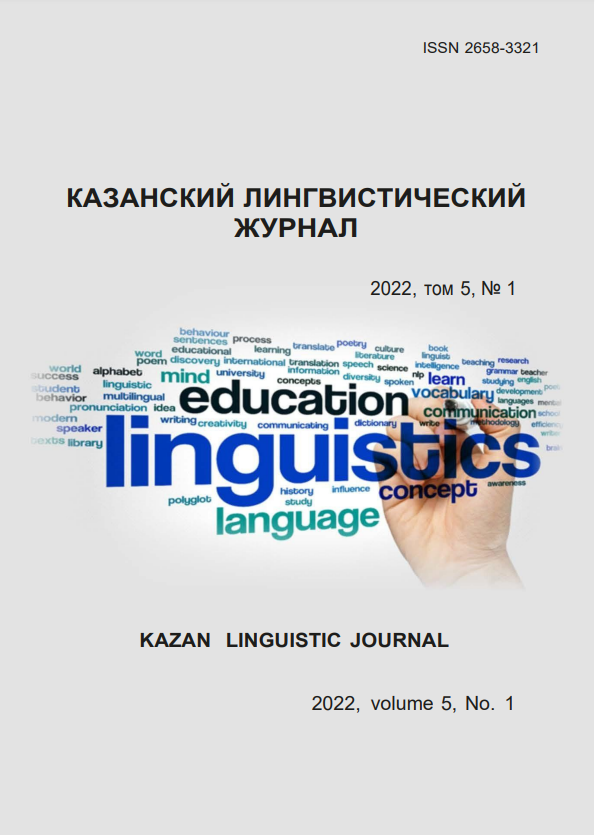Turkish postmodernism through the “second wave” paradigm (on the example of creative work of Hasan ali Toptas and Perihan Magden)
https://doi.org/10.26907/2658-3321.2022.5.1.36-45
Keywords:
turkish postmodernism, narrative, intertextuality, modernist direction, alienationAbstract
This paper examines the aspects of Turkish postmodernism of the “second wave”, which is justified by a small number of theoretical works and insufficient development of research concerning representatives of the “second wave” of Turkish postmodernism. The exception is the works of Russian turkologists M. M. Repenkova and O. V. Kareva, who in their research consider the features of the postmodern paradigm in the novelistics of the leading representatives of the" second wave " of Turkish postmodernism.
The relevance of the problem is the need for an artistic understanding of the issues of social reorganization of the country, and to identify the relationship between the inner world of an individual and socio-political events that influenced the artistic specificity of modernist literature. The purpose of this article is to consider the philosophical categories of alienation and loneliness and their embodiment in the literary and artistic field. The main results of the study are in understanding the formation of a new mentality, in the formation of a new personality, designed to be perceived as not only a literary phenomenon, but also as socio-political and cultural-historical one.
References
Repenkova M.M. Rotating mirrors: postmodernism in the literature of Turkey. In-t countries of Asia and Africa of Lomonosov Moscow State University. M.: East. lit.; 2010. (In Russ.)
Kareva O. V. Veseloe razrushenie: postmodernist paradigm in the novelistics of Ihsan oktay Anar. - Moscow: IBA Publishing house; 2014. (In Russ.)
Ecevit Y. Türk Romanında Postmodernist Açılımlar. İstanbul.: İletişim yayınları; 2016. (In Turk.)
Toptaş H.A. Heba. Ankara: İletişim; 2014. (In Turk.)
Orhan Pamuk: The Question of Conscience Available from: https://www.theguardian.com/books/comment/story/0,1789061,00.html. [accessed: 15.08.2020].
Hamer R. Millet Books «The Messenger Boy Murders». Ankara: İletişim; 2009. (In Turk.)
Freely M. Cornucopia. Berrin Torolsan; 2009. (In Turk.)
Interview with turkish writer Perihan Magden: War of nerves. Available from: http://sendika30.org/2006/08/interview-with-turkish-writer-perihan-magdenwar-of-nerves-by-kris-evans-aljazeera.html. [accessed: 01.03.2020].
Perihan Magden. Available from: http://t24.com.tr/yazarlar/perihan-magden.html. [accessed: 15.08.2020].
Repenkova M. M. Turkish literature at the turn of XX-XXI centuries: the main paradigms. In-t of Asian and African countries of Lomonosov Moscow State University. M.: East. lit.; 2016. (In Russ.)
Üster C. Yeryüzü kitaplığı. Radikal Gazetesi; 2009. (In Turk.)
200 outstanding Turks apologize for the great catastrophe of 1915. Available from :http://www.armeniapedia.org/wiki/200_prominent_Turks_apologize_for_great_catastrophe_of_1915.html. [accessed: 10.06.2020].






